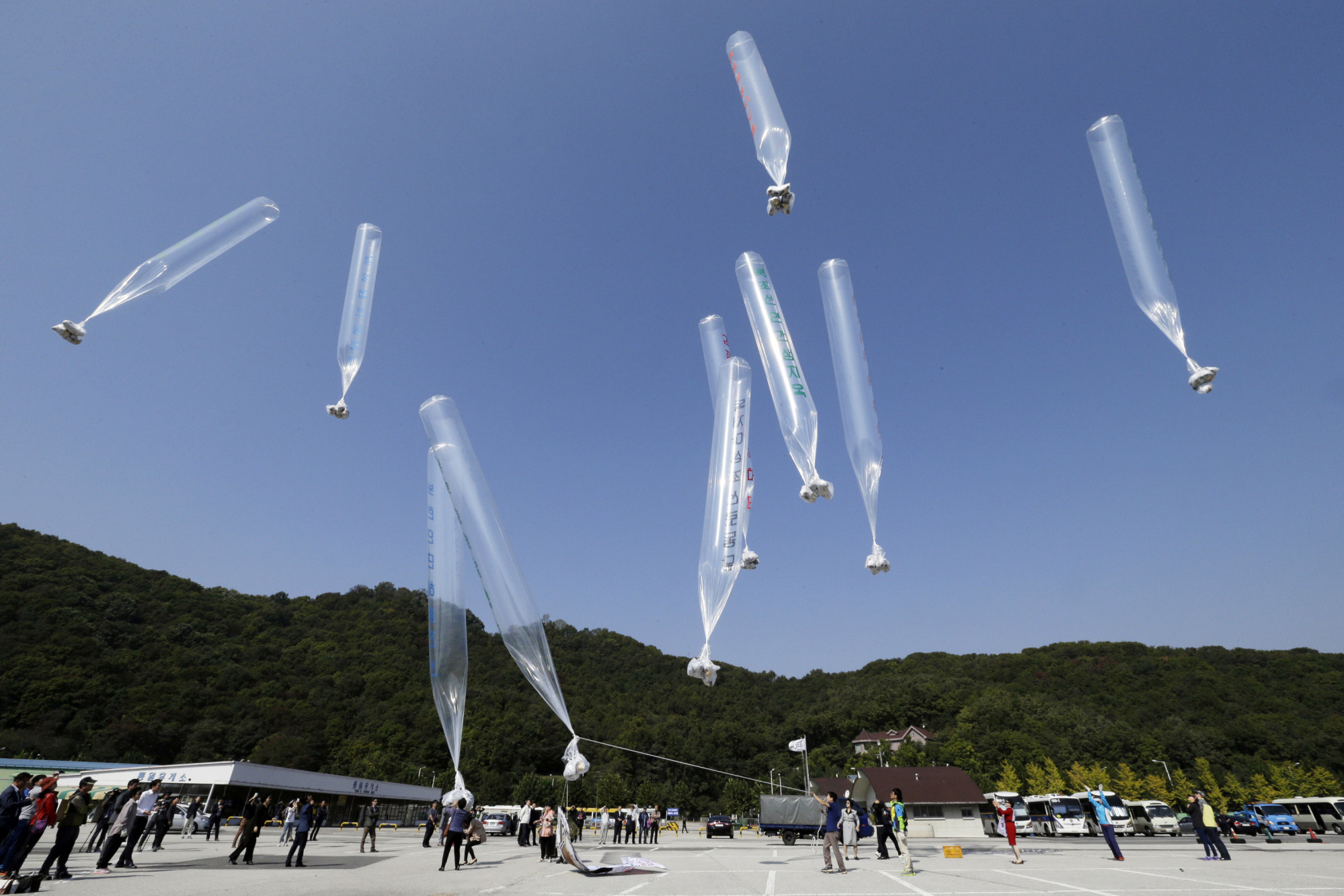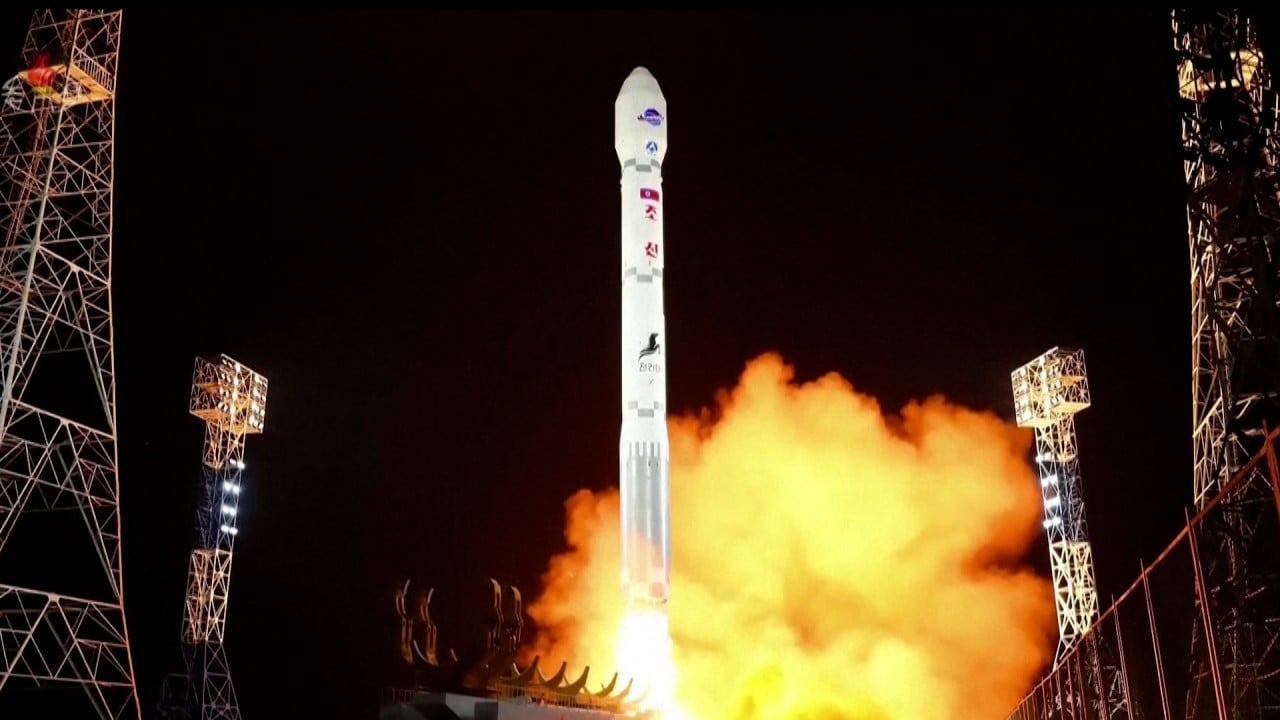Seoul urged to keep inter-Korean military pact as tensions soar: ‘it’s a safety pin for peace’
North Korea warns ‘no guarantee’ war won’t break out as South lifts leaflets ban
North Korea warns ‘no guarantee’ war won’t break out as South lifts leaflets ban
North Korea last month threatened to “pour a shower of shells” on the South over anti-Pyongyang propaganda leaflets, condemning the campaign as “psychological warfare” and “a pre-emptive attack” that would act as a “detonator” of a war bringing about an end to its southern rival.

In 2014, the two Koreas exchanged machine-gun fire after the North apparently tried to shoot down balloons carrying propaganda leaflets critical of the regime.
The move notably allowed the South to resume reconnaissance by drones near the border. The North immediately responded by scrapping the military accord entirely, pledging to deploy more armed forces and new weapons on its border.
Some analysts cautioned against the suspension of the military accord, citing its function as a “safety pin” for peace. Others said the accord was put in place at the cost of curtailing allied surveillance and military training, and did not reduce the North Korean military threat.
North Korean defectors in the South said they would resume launching leaflets carried by gas-filled balloons across the border when the wind direction changed in spring.
“The North is highly likely to respond by firing anti-aircraft guns at the balloons and the bullets would land in the South, forcing South Korean soldiers to respond by opening fire from their own guns,” Yang said, referring to the case in 2014.
“What would happen from then on would be anybody’s guess” in the absence of the 2018 agreement, he warned.
I am worried that an armed clash over the leaflet launches is just a matter of time
Cho Han-bum of the Korea Institute for National Unification echoed Yang’s concern.
“I am worried that an armed clash over the leaflet launches is just a matter of time,” he said. “If the North opens fire at these balloons, the South’s military, which has vowed tough responses so many times to North Korean provocations, would have no alternative but to fire back.”
Terence Roehrig, a professor of national security affairs at the US Naval War College, said that although North Korea had violated the 2018 accord on several occasions and was not adhering to its spirit, “South Korea is better off with the agreement in place than walking away from it”.
Roehrig added that security concerns regarding North Korea’s non-compliance with the accord were relatively minor compared with the security and political costs of ending the agreement, which undercuts the broader goal of promoting long-term stability on the Korean peninsula.
Why China’s ties with Russia, North Korea ‘will not serve Beijing’s interests’
Why China’s ties with Russia, North Korea ‘will not serve Beijing’s interests’
Critics have said that the pact weakens Seoul’s ability to monitor North Korea.
“Over the years, I have heard comments from both South Korean and US colleagues that the inability to fly reconnaissance aircraft near the DMZ denies our countries’ key reconnaissance information,” he said.
Bruce Klingner, a former CIA analyst now with the US-based Heritage Foundation, said the 2018 accord was “a good agreement in theory”, since it benefited both sides by “reducing the risk of tactical clashes and inadvertent escalation”.
However, with further measures stalled, the pact came at the cost of curtailing allied surveillance and military training and did not reduce the North Korean military threat, he said.
Additional reporting by Reuters and The Korea Times


